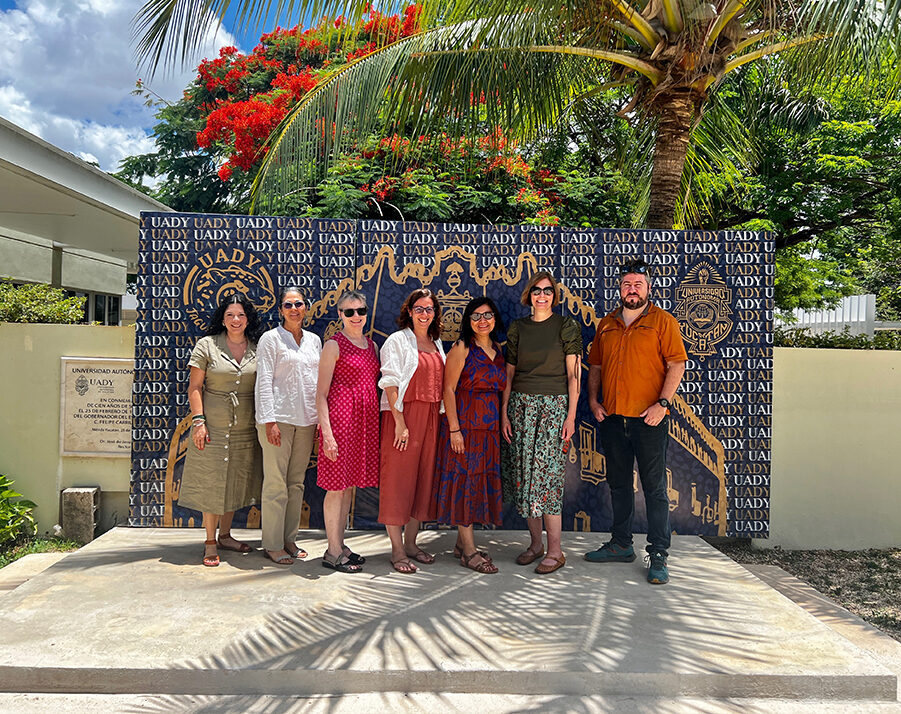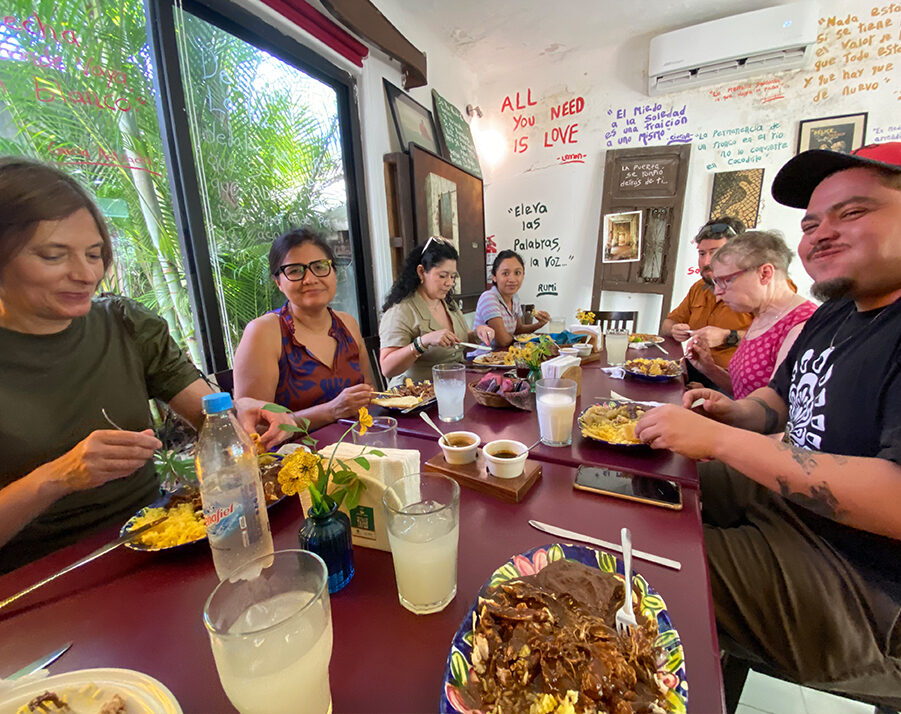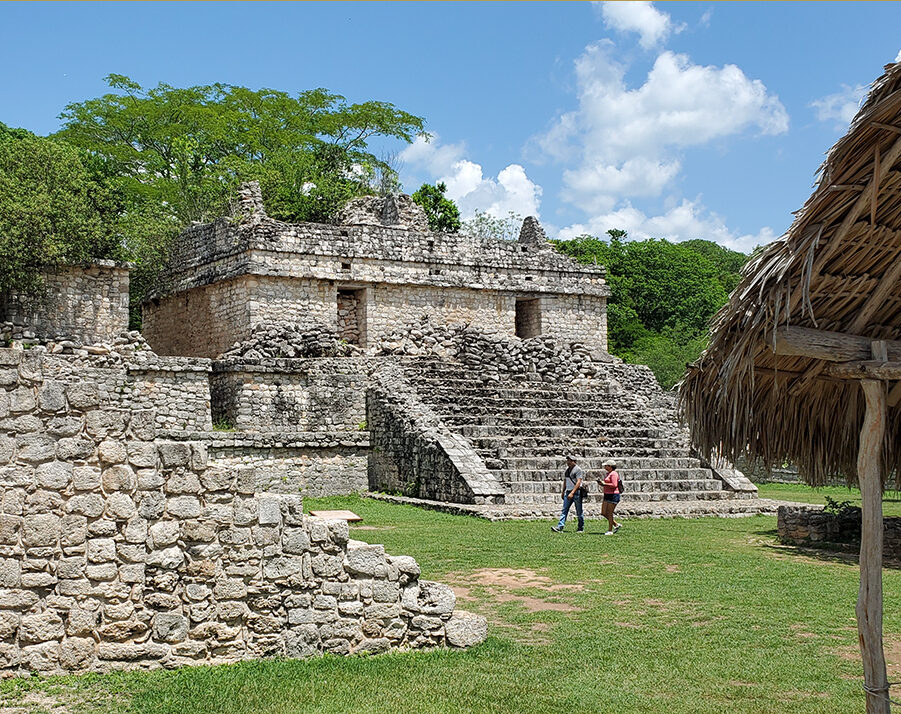Exploring Community-Based Tourism in the Yucatán Peninsula

People from all over the world travel to Mexico’s Yucatán Peninsula to visit the archaeological wonder of Chichén Itzá and the beaches of Cancún. Much of this infrastructure is managed by federal and state governments and transnational corporations. While Yucatec Maya communities provide cheap labor for the tourist economy, these communities do not always have access to tourist dollars. Co’ox Mayab, a union of cooperative societies committed to supporting community-based tourism, is working to change this. Community-based tourism (CBT) allows Maya communities to move beyond dominant narratives of vanishing Indians and construct their own narratives about their communities. It also allows them to determine when and how to share Indigenous knowledges and practices with tourists. CBT’s approach is deemed a respectful and sustainable way for Yucatec Maya communities to fully participate in intercultural exchanges within tourist economies.
In June 2023, with funding from a CHCI Membership Fund Grant, the University of Minnesota’s Institute for Advanced Study director Bianet Castellanos and staff (Susannah Smith, Carolina Maranon-Cobos, and Juliet Burba) organized a meeting with Co’ox Mayab organizers Gloria Dzib Collí and Alejandro Montañez Giustinianovic, Professor Samuel Jouault of the Universidad Autónoma de Yucatán (UADY), and Professor Matilde Córdoba Azcárate of the University of California, San Diego, to discuss the possibility working with the UADY and Co’ox Mayab to organize a Global Humanities Institute in Mérida, Yucatán.

Co’ox Mayab introduced us to one member of their cooperative, Unajil Ek Balam, and their efforts to promote sustainable tourism in their community. Located in the Maya community of Ek Balam, Yucatán, Unajil Ek Balam provides tours of community gardens and milpas (cornfields) that educate tourists about the local impact of climate change and tourism on their community. Ek Balam is an ejido, a collective landholding where residents depend on rain-fed subsistence agriculture and have the right to work the land in perpetuity. Tourism has become a critical source of income; elders and local residents lead garden and farm tours, sell crafts like hand-woven hammocks, and manage a cabaña complex that houses tourists and archaeologists who work in the neighboring archaeological site Ek Balam.

The IAS team, along with Professor Jouault and Professor Córdoba Azcárate, participated in a tour of the milpa with a local farmer who discussed the renewed focus on drought-resistant seeds and cultivation practices needed to address climate change. Local residents talked to us about their concerns over the Maya Train that is scheduled to open in December 2023. They wondered: Will it attract new tourism or cause tourists to bypass Ek Balam altogether? This conversation affirmed that any project we take up with Co’ox Mayab needs to center Indigenous concerns and needs. This work is guided by the Yucatec Maya ethos of mu’uch kuxtal (convivencia)—an ethic of mutual care and living well together. Advocating for the co-production of knowledge is essential for building mutually respectful collaborations based on mu’uch kuxtal. We look forward to exploring how to care for each other during these times of crises and change.